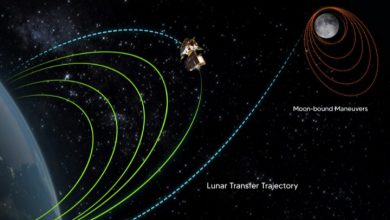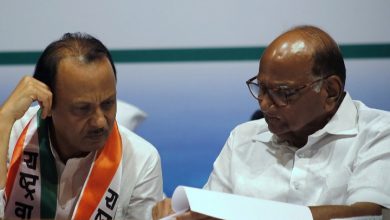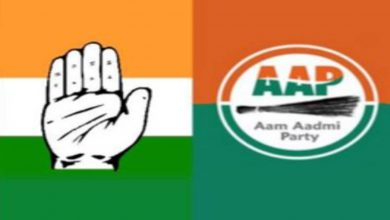India, Japan start working on high-speed train during Abe visit

Japanese Prime Minister Shinzo Abe, left and Indian Prime Minister Narendra Modi hold hands during the ground-breaking ceremony for a high-speed rail project in Ahmadabad, India, on Sept. 14. (AP Photo)
AHMADABAD, India–India and Japan on Thursday launched work on a high-speed train in the western Indian state of Gujarat, during a visit by Japan’s Prime Minister Shinzo Abe.
The bullet train will link Ahmadabad, the main commercial city in Indian Prime Minister Narendra Modi’s native state, to India’s financial capital of Mumbai.
The 500-kilometer project will be financed by Japanese credit of $17 billion (1.8 trillion yen) and is expected to be completed by 2022. The loan carries a nominal interest of .1 percent to be paid over the next 50 years.
Abe and Modi also laid the foundation stone of an institute that will be set up in Gujarat’s Vadodara city to train around 4,000 people to run the high-speed train.
Analysts say building the high-speed train will give a boost to infrastructure development in India’s fast-growing western industrial region, contribute to economic growth and decongest crowded cities.
“A strong India is in Japan’s interest and a strong Japan is in India’s interest,” Abe said soon after he and Modi pressed a button at the foundation laying ceremony for the high-speed train.
Talks between Modi and Abe are expected to focus on security at a time when both countries share security concerns about a rising China.
The two countries will also announce progress on an Asia-Africa growth initiative to pool Indian and Japanese efforts to strengthen infrastructure in African countries.
Defense technology and cooperation in manufacture of military hardware, including a possible breakthrough on the US-2 amphibious aircraft, and technology cooperation on making unmanned ground vehicles and robots will also figure in Thursday’s talks.
The two leaders are also likely to consider progress in a civilian nuclear cooperation agreement between India and Japan, which was ratified and came into force in July.
The countries are almost polar opposites. India’s chaotic cities and its youthful population contrast starkly with Japan’s orderly society, immaculate streets and mature economy. But those differences complement each other, and Abe and Modi repeatedly have emphasized shared interests and values.







